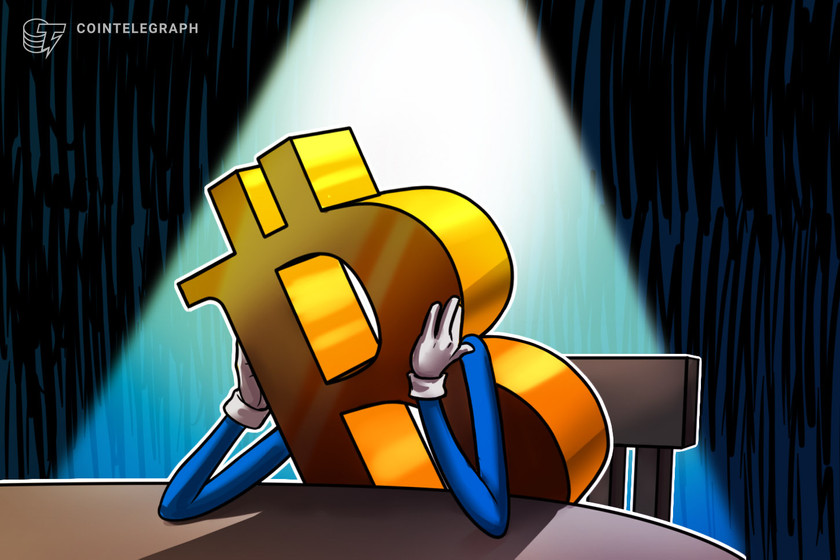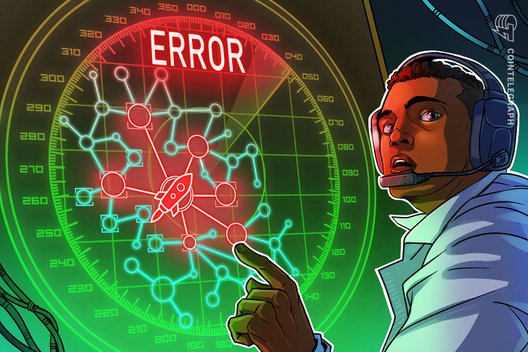Facebook’s dream of being a cryptocurrency giant is seemingly becoming more distant by the day, as increasing regulatory uncertainty continues to jeopardize the company’s Libra project. While Libra has been surrounded by anything but good news even before its launch, crypto watchers should ask themselves, Does Bitcoin need Libra to thrive at all? A crypto world without Libra — is that a good thing or not? What would a no-Libra crypto world be like, and how would that impact Bitcoin?
Scrutiny
Despite its innovative approach and its ambition as a global currency, Facebook’s Libra seems to remain an unwelcome presence in the world of traditional finance, especially from a regulatory perspective. Just recently, a G-7 report warned that a global cryptocurrency like Libra could pose a risk to the global financial system. The report highlighted Anti-Money Laundering (AML) concerns, a translation of which reads:
“Libra could give rise to several serious risks related to public policy priorities including, in particular, anti-money laundering and countering the financing of terrorism, as well as consumer and data protection, cyber resilience, fair competition, and tax compliance.”
United States Treasury Secretary Steven Mnuchin said the G-7 finance ministers and central bankers all had “very strong concerns about Libra and stable coins in general,” although they believed in financial innovation and the need for cheaper international payment processing.
The U.S., the United Kingdom and France have also raised similar concerns. Ahead of Mark Zuckerberg’s testimony at the House Financial Services Committee in late October, U.S. senators Brian Schatz (D-HI) and Sherrod Brown (D-OH) sent three separate letters to the CEOs of Visa, Mastercard and Stripe, which were among key partners of the Libra project, saying Facebook has failed to address regulatory concerns over terrorism, money laundering, monetary policy and economic destabilization. The senators also added that “it is chilling to think what could happen if Facebook combines encrypted messaging with embedded anonymous global payments via Libra.”
Visa, Mastercard, PayPal, eBay, Stripe and Mercado Pago have already announced their withdrawal from the Libra project in mid-October. However, despite the departure of the big names, the Libra Association finalized its board members after a meeting in Geneva, Switzerland earlier this month.
Reverse thinking
Creating a simple yet global cryptocurrency that is accessible to millions for everyday use and run on a secured network that is backed by blockchain technology sounds as perfect as it can get. With the support of a leading social media company and its global partners, Libra sounds destined for success. However, perhaps it’s these very features inherent to Libra that cause regulators to suspect that the token could pose a tangible threat to the status of the U.S. dollar as a global reserve currency.
If we look at the whole Libra story from a wider perspective, all the skepticism that it has been facing is actual proof that the original idea of decentralized finance does work and could change the world of finance forever, especially for parties with a vested interest.
According to the original Bitcoin white paper, Satoshi Nakamoto envisioned Bitcoin as “a purely peer-to-peer version of electronic cash [allowing] online payments to be sent directly from one party to another without going through a financial institution.” Isn’t that just what Libra is trying to achieve? While this matter would eventually fall into the “centralized of the decentralized” debate, broadly speaking, the original concept of Bitcoin — or Libra, in this case — could disrupt the order of the conventional finance world if it becomes what it claims to be.
Bitcoin needs Libra?
Now, after more than a decade since the debut of the original Bitcoin white paper, the cryptocurrency market is still young but relatively stable and mature compared to 10 years ago. If we all believe that Bitcoin is at the right market position and plays a leading role in the cryptocurrency market, where will Bitcoin head to in a market with or without Libra?
Bitcoin has been acting as a “benchmark” of the cryptocurrency markets, and undoubtedly the most widely quoted crypto in the financial world. If Libra is lucky enough to be greenlighted by global regulators and become what it was intended to be, it could cause Bitcoin prices to surge drastically as a knee-jerk reaction. However, in a macro and long-term perspective, we believe Bitcoin doesn’t need Libra to thrive at all.
Part of Bitcoin’s purpose is to be a store of value, and we’ve been seeing Bitcoin functioning more in that way as the digital gold narrative has been heavily discussed in times of market turbulence. We believe that in a crypto market where Bitcoin and Libra coexist, the two might serve different purposes, where Bitcoin is more of a store of value, while Libra could be more on the payment side, since it is backed by a social network counting 2.7 billion users.
Related: Is Bitcoin a Store of Value? Experts on BTC as Digital Gold
Still, with the substantial regulatory challenges, it’s possible that Libra could be dead even before it’s born, or at least, Facebook and its Libra partners will have to jump through some serious legal and regulatory hoops in the coming years before Libra is permitted into the market. We believe this prolonged process could help lawmakers, regulators and financial markets alike to gain a deeper understanding of Bitcoin and cryptocurrency, and could push Bitcoin closer to the general public. In this case, Libra could be “dying a hero,” though it’s still too early to make that call.
As a crypto benchmark, Bitcoin doesn’t need Libra to drive BTC prices, although it could have some short-term influences on Bitcoin prices at its initial stage (assuming Libra gets all the necessary regulatory approvals). From a long-term perspective, Bitcoin and Libra could serve different purposes and coexist peacefully in the crypto markets. Regardless of the outcome of the Libra saga, Bitcoin could benefit from Facebook’s efforts in clearing legal and regulatory barriers, pushing crypto assets one step closer to the general markets.
The views, thoughts and opinions expressed here are the author’s alone and do not necessarily reflect or represent the views and opinions of Cointelegraph.
Cyrus Ip works at OKEx as a research analyst. He provides value-added Bitcoin and altcoin analysis and has produced macro-thematic research that bridges the gap between the crypto world and traditional financial markets. Previously, Cyrus worked with Citigroup where he served as an FX Market Analyst with a focus on G10 and EMFX. He was also a long-time financial journalist with solid experience in Hong Kong, China and Canada.






